It's a blue moon tonight, here's what that means
- Published
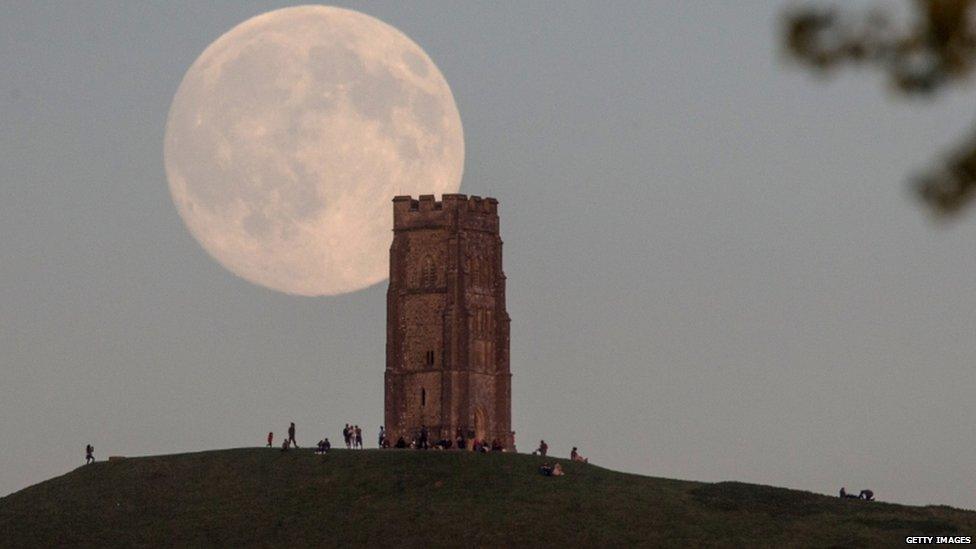
Moon over Glastonbury on Thursday night
There's going to be a blue moon. Um, what?
It's worth taking a good look at the night sky later as this is your last chance to see a blue moon until 2018.
Blue moons are pretty rare. We last saw one in 2012.
The term is normally used to describe the second of two full moons appearing in the same calendar month.
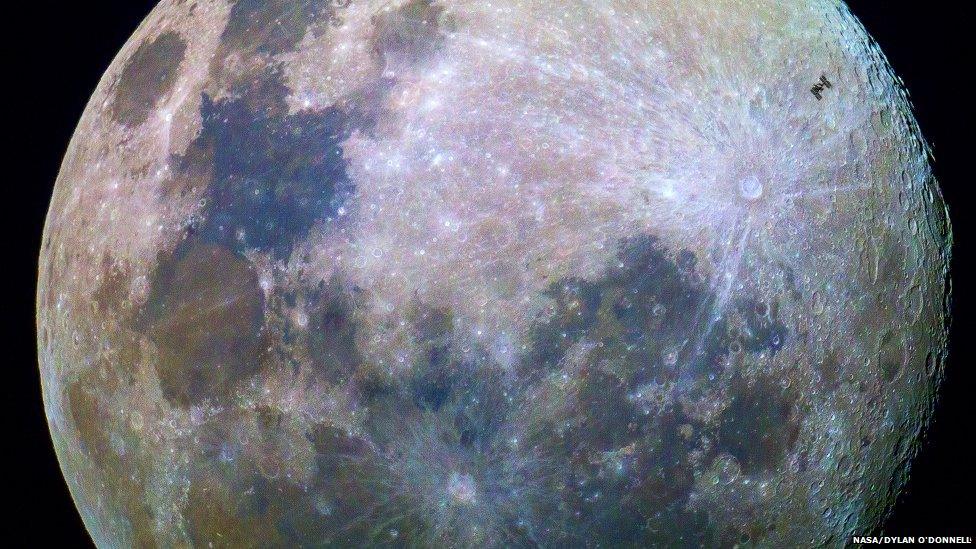
The colours in this picture of the Moon have been enhanced but correspond to real differences in the chemical makeup of the moon
The kicker? They aren't actually blue.
The moon's colour has nothing to do with whether it appears twice in a calendar month.
Moons only have a bluish tinge if there is specific-sized particles in the air, like dust or water droplets. So blue-coloured moons have been seen after wildfires and volcanoes, when smoke in the air scatters red wavelengths of light, acting like a blue filter.
One time there was said to be a blue moon was after the eruption of Mount Krakatoa in Indonesia in 1883. The dust in the atmosphere caused spectacular sunsets around the world - some think it's the inspiration for Edvard Munch's The Scream.
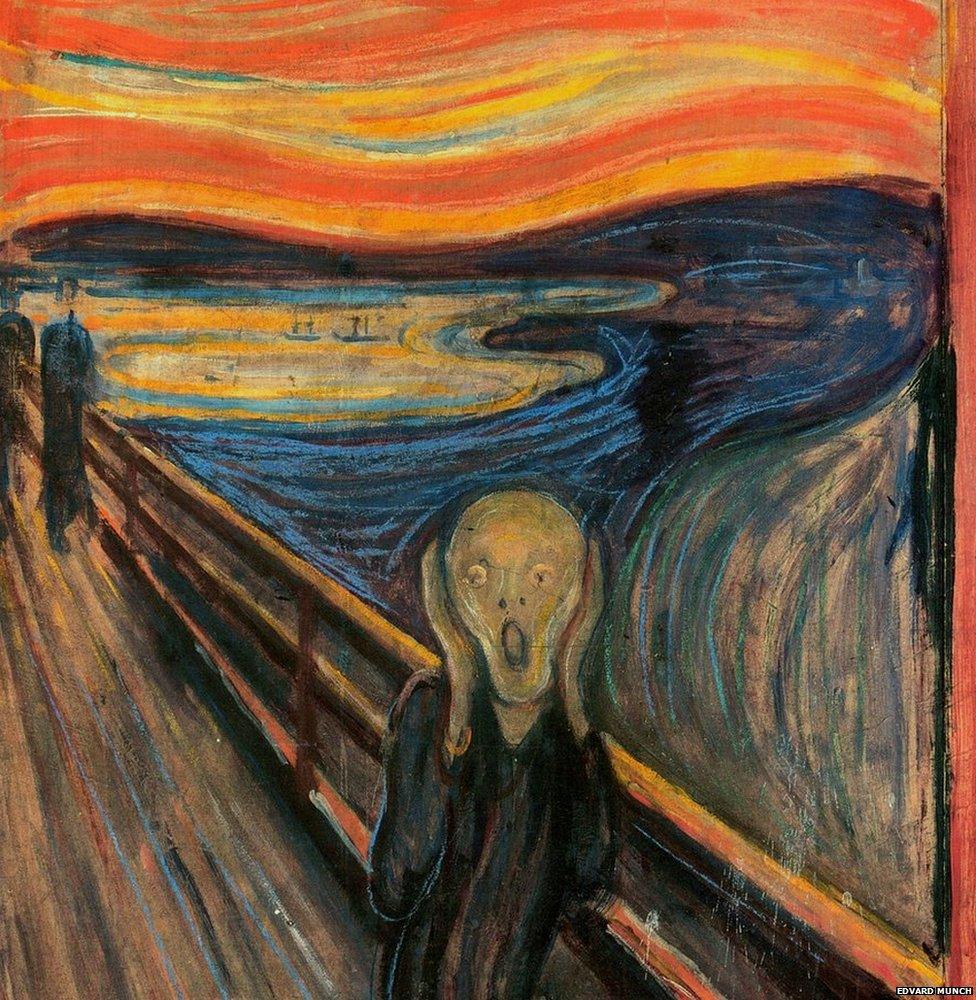
Edvard Munch's The Scream
In reality a blue moon is more likely to be red, according to Nasa, because minute particles called aerosols in our atmosphere filter out the blue light.
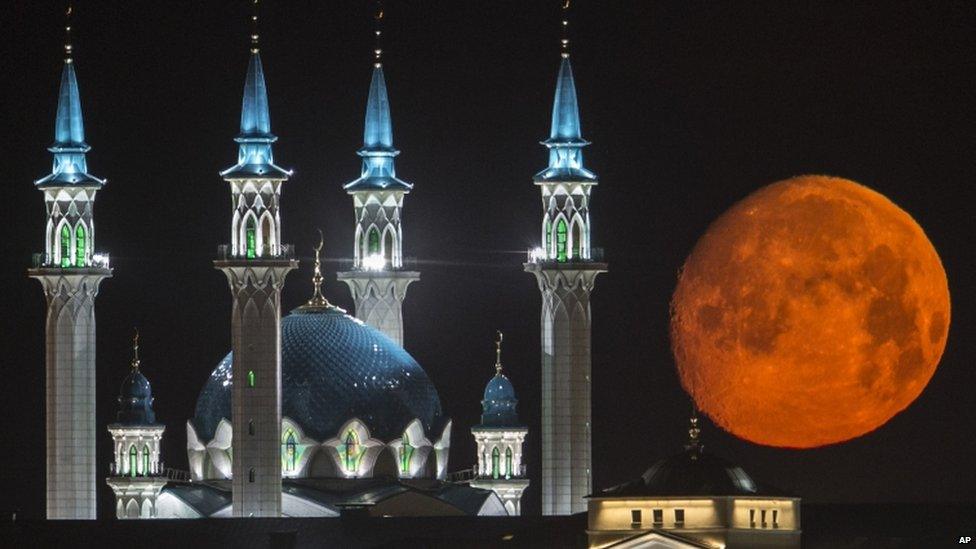
The full moon rises over the illuminated Kazan Kremlin with the Qol Sharif mosque illuminated in Kazan, the capital of Tatarstan, located in Russia's Volga River area about 700 km (450 miles) east of Moscow
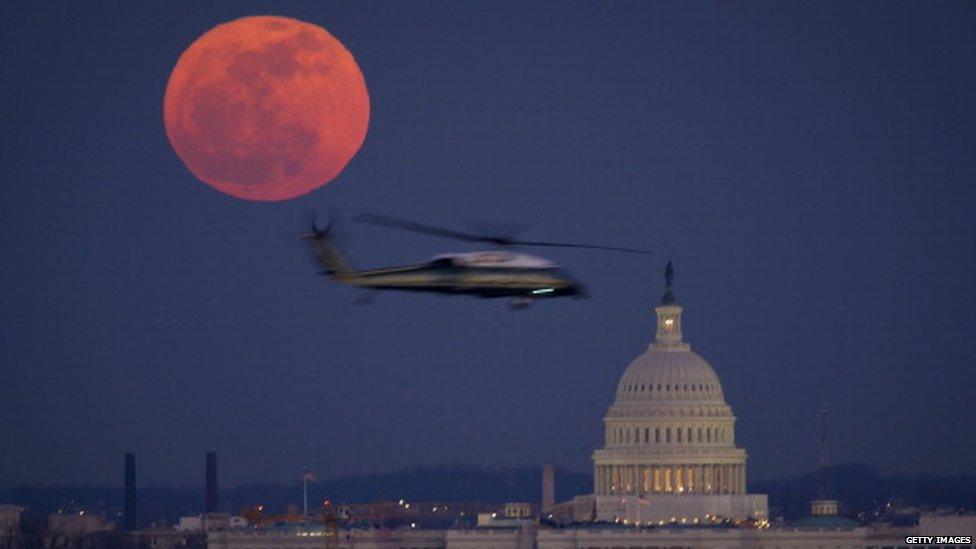
Full moons are just as likely to be red
One quite interesting thing about blue moons is that while the phrase has existed in English for a long time (the first recorded use of blue moon appears to be in the 15th century) it didn't used to have a scientific meaning. It just used to mean something rare.
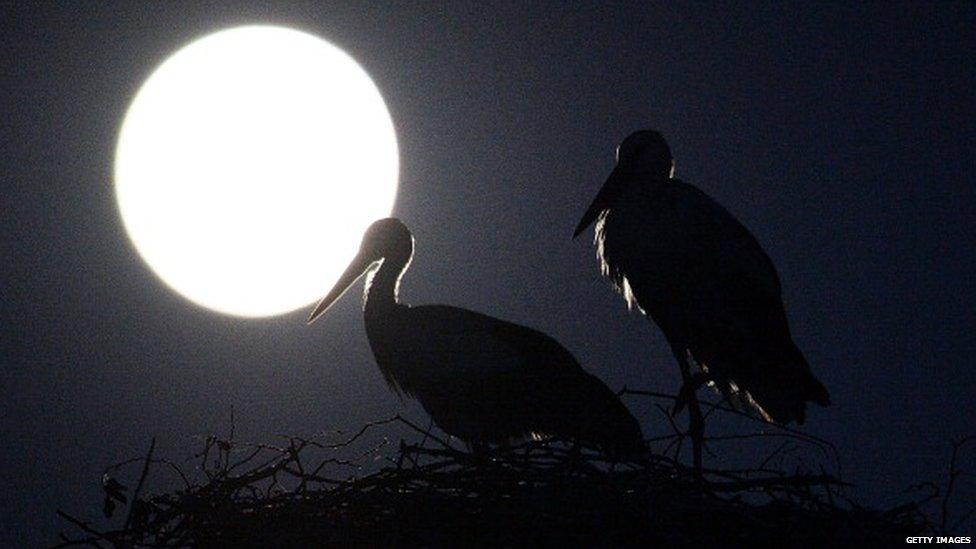
The moon will be full but it's unlikely to be blue
There's lots of confusion, external about how and why the astrological definition for the blue moon arose. There is a different "seasonal" definition which says a blue moon is the third of four full moons in one season, which is based roughly on the Christian calendar.
So now you know.
If you see the Blue Moon tonight share your photos with us:
Email: Yourpics@bbc.co.uk, external
Upload your photos, external
WhatsApp them to +44 7525 900971
Or Tweet us @BBCNewsbeat, external
Follow @BBCNewsbeat, external on Twitter, BBCNewsbeat, external on Instagram, Radio1Newsbeat, external on YouTube and you can now follow BBC_Newsbeat on Snapchat